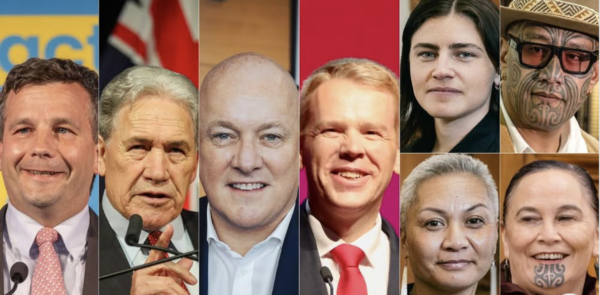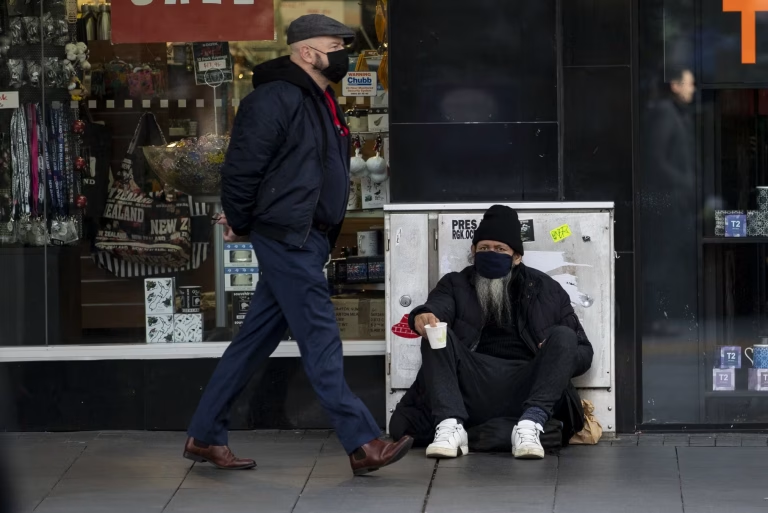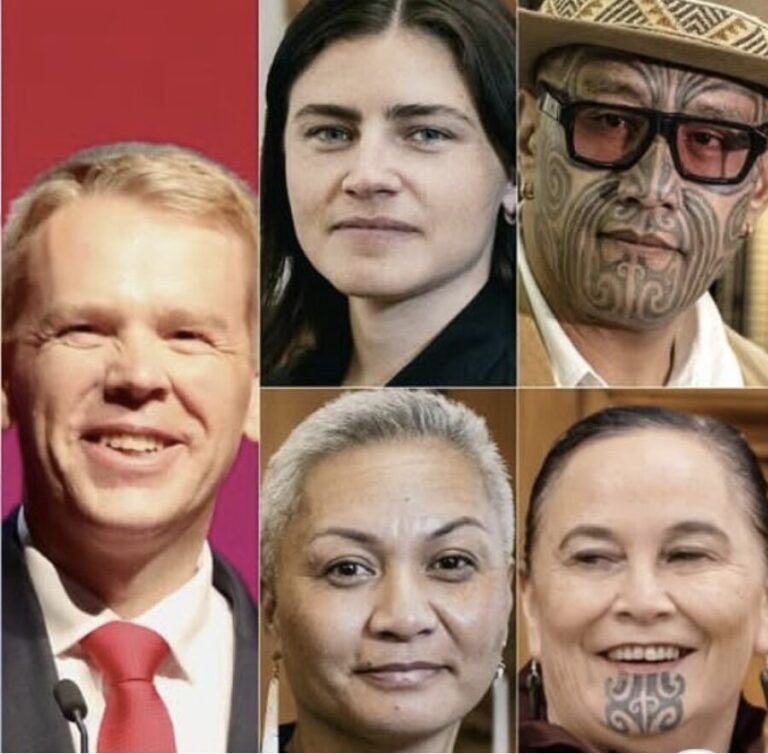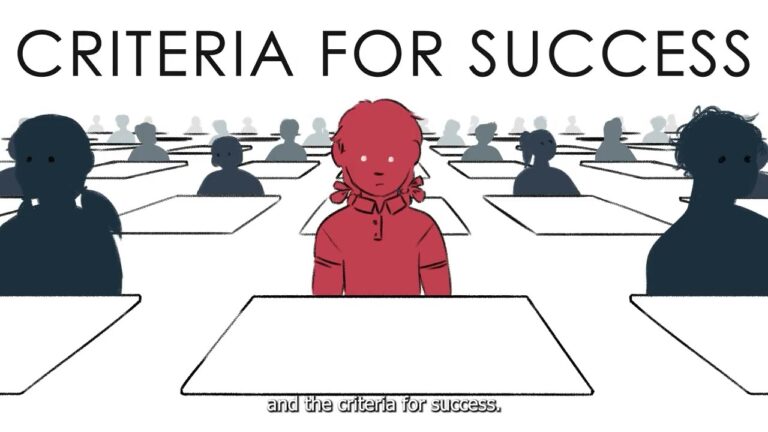MUST READ: What Is “Rogerpolitics”?

“ROGERNOMICS” is political shorthand for the neoliberal economic policies introduced by Labour’s finance minister, Roger Douglas, between 1984 and 1988. While most New Zealanders have heard of Rogernomics, nowhere near as many have heard of its inseparable companion, “Rogerpolitics”.
The term was coined by the New Zealand political scientist, Richard Mulgan, to describe the form of politics required to make sure that Rogernomics “took” in a country which, on the face of it, should have rejected neoliberalism out of hand. Had Rogerpolitics not been so successfully imbedded in the key organs of the New Zealand state, then Rogernomics would not have lasted.
Critical to the success of Rogerpolitics was the widespread public disillusionment with the style of politics that preceded it. In New Zealand’s case, the principal target of the public’s hostility was the National Party Prime Minister, Rob Muldoon, and his highly interventionist economic policies – “Muldoonism”. An additional factor in the public’s antipathy towards Muldoon was his facilitation of the extremely divisive Springbok Tour of 1981. In the eyes of younger New Zealanders, “The Tour” was proof of their elders’ unfitness to rule. The people referred to by the then prominent political journalist, Colin James, as the “RSA Generation” had, in the eyes of the “Vietnam Generation”, been confronted with a straightforward moral test – and they had failed.
Without Muldoon and Muldoonism; without the Springbok Tour; the hunger for a new way of managing the economy and running the country would not have been so acute. The proponents of neoliberalism, or “free market forces” (as the ideology was more commonly referred to thirty-five years ago) were pushing against an open door.
It was the same all over the advanced capitalist world. The interventionist economic policies that had played such a crucial role in generating the unparalleled prosperity of the post-war period had finally run up against the buffers of the capitalist system. Every attempt to reduce the rising levels of unemployment and inflation that were the primary manifestations of the system’s failure only ended up pushing them higher. Margaret Thatcher’s Conservative Party captured the growing sense of unease with its 1979 slogan: “Labour isn’t working.” The following year, in the USA, the Republican candidate for President, Ronald Reagan, summed-up the popular mood when he declared: “In this present crisis, government is not the solution to our problem, government IS the problem.”
In its essence, this is what Rogerpolitics is all about: getting government out of the way. If politicians, by interfering in the economy, only made things worse, then the obvious solution is simply to prevent them from interfering.
Accordingly, the Economic Stabilisation Act, which had since the Second World War allowed the Cabinet to more-or-less run the New Zealand economy by decree, was repealed. The Reserve Bank of New Zealand was freed from political interference. The State Sector Act, by introducing market disciplines to government departments and agencies, fundamentally reshaped the structure and purpose of the New Zealand civil service. Whenever possible, state-owned enterprises were sold into private hands.
At both the national and the local level the effect of these economic and political reforms was to significantly disempower the country’s politicians. Regulation, where it couldn’t be avoided altogether, was to be “light-handed”. The day-to-day running of things was to be left to the market’s “invisible hand” or, in those places where “free market forces” had yet to make their presence felt, to the new order’s administrative proxies – the CEOs of the new government ministries and local government bureaucracies.
With remarkable alacrity, the ideological and practical political infrastructure required to support the new economic regime was cemented into place. In the nation’s schools and universities; in its publicly and privately owned news media; in its local and national institutions, Rogerpolitics became the new orthodoxy. For the next thirty years it would not only inspire the redesign of the mechanisms by which political power is exercised, but also the moral justifications for their use.
Those New Zealanders born after 1984 – New Zealand neoliberalism’s “Year Zero” – have absorbed the “free market forces” catechism practically without thinking.
The market organises human activity more efficiently and effectively than the state.
The freer the market, the better the organisation.
Private ownership generates much better outcomes than public ownership.
Capitalism works best when Money, Goods and Labour are all permitted to move freely around the globe.
Free trade promotes peace, prosperity and global understanding.
Protectionism is an outgrowth of nationalism – both of which are very bad things.
Trade unions distort the signals of the labour market – which makes them very bad things also.
Capitalism celebrates individual freedom and embraces human diversity – racism, sexism and all other forms of discrimination have no place in a properly functioning capitalist society.
In summary, the only sort of politics which it is ethical (and advisable) to practice in the New Zealand created by Rogernomics is the politics which exerts the least influence over the smooth operation of the free markets it brought into being. Rogerpolitics both asserts and insists that the best politician any New Zealander can be is the politician whose actions produce the least effect on the operation of the nation’s economy. The very worst politician a New Zealander can be is the politician who mobilises the envy of the many who have failed in the marketplace against the few who have succeeded.
Rogerpolitics does not believe that democracy is a market friendly form of government, and all Rogerpoliticians are expected to act accordingly.







“Rogerpolitics does not believe that democracy is a market friendly form of government, and all Rogerpoliticians are expected to act accordingly.”
Well, well, well, it is so true all this.
https://en.wikipedia.org/wiki/Milton_Friedman
https://en.wikipedia.org/wiki/Chicago_Boys
I remember the Chicago Boys who thrived under Chilean Dictator President Pinochet, responsible for thousands of deaths of dissidents.
These forces, the same that Roger Douglas prescribed to, with his Rogernomics and Rogerpolitics, they would not shy away from using brutal forces to get it their way, to force upon people economic dictatorship serving the corporates.
They only ran in open doors in NZ Inc, because the population has been so brain washed and is in a large part so docile and servile, they will sign almost anything, and rather chat about Bunning’s controversial advice on onions below or on top of a BBQ sausage.
That is the state of affairs, it has not changed much, and hence we have the present government carry on with a slightly softer version of neoliberal Rogernomics and Rogerpolitics, as per usual.
Do not rock the boat, do not challenge and change things too much, serve the money and profit interests of those so keen to keep reaping the benefits of rape and pillage of the environment and the common people. The latter are so stunned, they do not even understand what is happening to them, a bit like the abused blaming her or himself than the perpetrator of abuse dished out onto them.
Where is help, where is the true alternative in politics and economics, it seems like it is nowhere to be seen in this little land down under, the sleepy hobbit territory called NZ Aotearoa.
“Capitalism celebrates individual freedom and embraces human diversity – racism, sexism and all other forms of discrimination have no place in a properly functioning capitalist society..”
Ironically, perhaps the only truth to that list of bs dogma. Though even with “human diversity – racism, sexism and all other forms of discrimination have no place in a properly functioning capitalist society”, the scourge of low pay/working poor, homelessness, child poverty, and other socio-economic inequalities is ignored at best, and made the fault of those affected at worst (victim blaming).
Which would appear to be a necessity as making money scarce makes it more desirable by those who don’t have it or those wanting to make sure they don’t lose it. (Hence why tax cuts are popular with the middle classes.)
A couple of questions;
As the ‘managed economy ‘ and the ‘unfettered market’ have failed the masses what next? (and how)
What of ‘growth’?
Growth is the problem.
Completely unsustainable.
Degrowth cannot be avoided either by a managed reduction of consumption and population across the globe of even worse a catastrophic crash.
Growth merchants seem to not understand about the planet being finite and present growth stuffing up the fine balance humans cannibalised.
I was ok at economics at school, got scholarship, have done some economics papers at uni in a past life and I am constanly struck by the misuse of the term “free market”.
This is sometimes intentional as you allude to to give the impression that freedom allows market forces to operate in perfect balance – this is propaganda.
A free market is a notional concept and never actually exists unaided. Read that again.
A free market is a theoretical construct. It requires all players to have equal entry to the market and have similar economies of scale etc etc.
government regulation is hence necessary to balance the big and little players in the market to achieve a fair “price” for a good.
How often have we been lied to about market forces by Freidmanian economists, politicians and media?
Look at dairy prices, building products, supermarket goods, power prices in this country, abject failure of markets is everywhere. Oligopolies and monopolies dominate and prevent new entry to markets, there is little oversight for the citizen.
A free market has never meant an unregulated market.
Those who pull the the strings know this, joe blogs has just accepted the lie not knowing any better.
It’s only wrong if you don’t accept that government influence isn’t a legitimate thing to buy. It’s just another service going to the highest bidder, donor. The only way lolz-fucktards can call foul on it is to be tremendous hypocrites, since this is just the market they so revere adapting to a situation, like the anarcho-capitalist bandit-state that replaced communism in Russia.